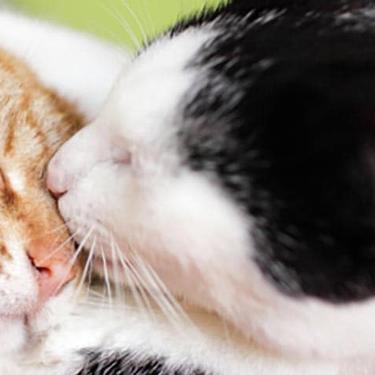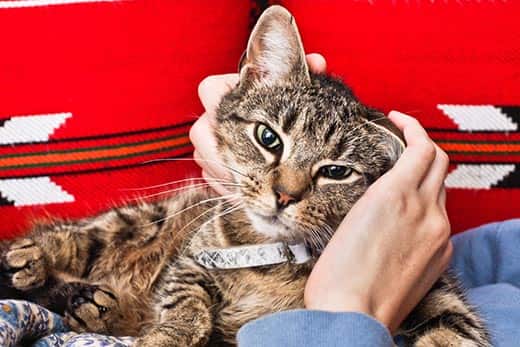
-
Find the right food for your petTake this quiz to see which food may be the best for your furry friend.Find the right food for your petTake this quiz to see which food may be the best for your furry friend.Featured products
 Puppy Large Breed Chicken & Brown Rice Recipe
Puppy Large Breed Chicken & Brown Rice RecipeVital nutrients to support 5 essential building blocks for lifelong health
Shop Now Puppy Sensitive Stomach & Skin Salmon & Brown Rice Recipe
Puppy Sensitive Stomach & Skin Salmon & Brown Rice RecipeDelicious, highly digestible recipe, gentle on stomachs. Nourishes skin & promotes a lustrous coat
Shop Now Adult Chicken & Barley Recipe Dog Food
Adult Chicken & Barley Recipe Dog FoodSupports lean muscle and beautiful coat for adult dogs
Shop NowFeatured products Adult 7+ Chicken Recipe Cat Food
Adult 7+ Chicken Recipe Cat FoodSupports energy level and beautiful fur in mature cats
Shop Now Adult Urinary Hairball Control Chicken & Rice Recipe Cat Food
Adult Urinary Hairball Control Chicken & Rice Recipe Cat FoodActively supports the health of the whole urinary system
Shop Now Kitten Chicken Recipe
Kitten Chicken RecipeVital nutrients to support 5 essential building blocks for lifelong health
Shop Now -
Dog
- Dog Tips & Articles
-
Health Category
- Weight
- Food & Environmental Sensitivities
- Urinary
- Digestive
- Joint
- Kidney
-
Life Stage
- Puppy Nutrition
- Adult Nutrition
- Senior Nutrition
Cat- Cat Tips & Articles
-
Health Category
- Weight
- Skin & Food Sensitivities
- Urinary
- Digestive
- Kidney
-
Life Stage
- Kitten Nutrition
- Adult Nutrition
Featured articles Pet Food Storage Tips
Pet Food Storage TipsDiscover how and where to store your dry, as well as canned, dog and cat food. Learn how to find the "best before" dates on all Hill's pet food packaging.
Read More The Incredible Science Behind Your Pet's Microbiome
The Incredible Science Behind Your Pet's MicrobiomeLearn what a pet's microbiome is, how it contributes to your pet's gut & overall health, and why nutrition is important in maintaining healthy microbiomes.
Read More Water
WaterDiscover why water is the most important nutrient for your dog or cat to live a healthy life. Find out how much water your pet should consume each day.
Read More -


You've likely seen service dogs out and about assisting their pet parents, whether as guide dogs, diabetic or epileptic alert dogs, or emotional support dogs. But what about service cats? Cats are increasingly being sought out to help people in need as well.
Emotional support cats and therapy cats provide comfort to their pet parents and others in need of emotional and mental health support. Cats can provide a gentle and calming presence to people struggling with anything from loneliness or stress to depression, chronic anxiety or PTSD.
Is There Such a Thing as a Service Cat?
The U.S. Department of Justice doesn't currently recognize cats as service animals. However, some people refer to cats trained to perform assistive tasks (alerting their human of a medical emergency, for example) as "service cats" — they just don't have the same privileges as animals legally recognized as service animals, such as accompanying their pet parent into a store.
While cats aren't technically service animals, emotional support cats and therapy cats provide an important service to their pet parents and others.
What Is an Emotional Support Cat?
Emotional support cats are companion animals that comfort pet parents living with conditions such as anxiety and depression. A cat doesn't need to undergo specific training to be an emotional support animal, notes Petful — you just need to get a prescription letter from your doctor.
Emotional support animals have some legal rights, including free flights and the ability to live in residences with no-pets policies. But unlike service animals, they aren't allowed in most establishments, so your furry friend can't join you for a cappuccino unless the café permits it. Because laws vary state to state and globally, always research the locations you're traveling to with your emotional support cat to verify that you may do so legally.
What Is a Therapy Cat?
Therapy cats are also used to comfort people living with mental health issues, but they differ from emotional support cats in that they're trained and certified by professionals. Another difference is that therapy cats, while typically handled by their pet parents, tend to provide service to the larger community.


Tasty Tips

One Therapy Cat's Journey
According to author Janiss Garza, president of FitCat Publishing, cats "are actually perfect therapy animals — they're small enough to lie on the bed with patients and cuddle. They purr, which is a very soothing, healing sort of thing. They're soft to the touch. And they're more affectionate than given credit for."
Garza knows firsthand how effective therapy cats can be. She's the pet parent of Summer, an award-winning Somali, who she's been training since Summer was a 5-month-old kitten. In 2016, the pair began working as a team, visiting hospitals, nursing homes, schools, and offices. Garza documents Summer's adventures from a cat's perspective on her website, Sparkle Cat.
Is Your Cat Ready?
If you're interested in pursuing therapy certification for your cat, contact a reputable organization, such as Pet Partners, for specific details. No one breed makes a better therapy cat than another — what matters most is the specific cat's temperament and socialization. Garza adds that a therapy cat should be comfortable wearing a leash and/or harness and should be friendly to strangers, even in unfamiliar and noisy settings.
Garza documents Summer's adventures from a cat's eye perspective on her website, Sparkle Cat, written from the cat's eye point of view. "I've also used the blog to show that cats are capable of much more than people assume."


Christine O'Brien is a writer, mom, and long-time cat parent whose two Russian Blues rule the house. Her work also appears in Care.com, What to Expect, and Fit Pregnancy, where she writes about pets, pregnancy, and family life. Find and follow her on Instagram and Twitter @brovelliobrien.
Related products

Supports energy level and beautiful fur in mature cats

Supports lean muscle and beautiful fur for adult cats

Actively supports the health of the whole urinary system

Vital nutrients to support 5 essential building blocks for lifelong health
Related articles

Brushing your cat's teeth is just as important as brushing your own. Learn signs or oral health problems in your cat and how to avoid them.

What is the best food for an overweight cat? Learn all about weight control food for cats, including what's in it and how it works.

Discover how to identify cat sensitive skin and what you can do to help your cat thrive from head to paw.

Learn the different factors that might be contributing to your cat's weight gain, and how bigger doesn't always mean better.

Put your cat on a diet without them knowing
Our low calorie formula helps you control your cat's weight. It's packed with high-quality protein for building lean muscles, and made with purposeful ingredients for a flavorful, nutritious meal. Clinically proven antioxidants, Vitamin C+E, help promote a healthy immune system.
Put your cat on a diet without them knowing
Our low calorie formula helps you control your cat's weight. It's packed with high-quality protein for building lean muscles, and made with purposeful ingredients for a flavorful, nutritious meal. Clinically proven antioxidants, Vitamin C+E, help promote a healthy immune system.


